For the second year running, leading British professional services firm KPMG in partnership with the Cube Network, held a seminar on Islamophobia on November 25th.
Opening the program, Robina Qureshi, who is of Pakistani heritage, French by birth, lived for some time in Norway, and now works in London, shared that the open approach to diversity and inclusion means that at her office at KPMG, “I see people who look like me, which is always a good start.”
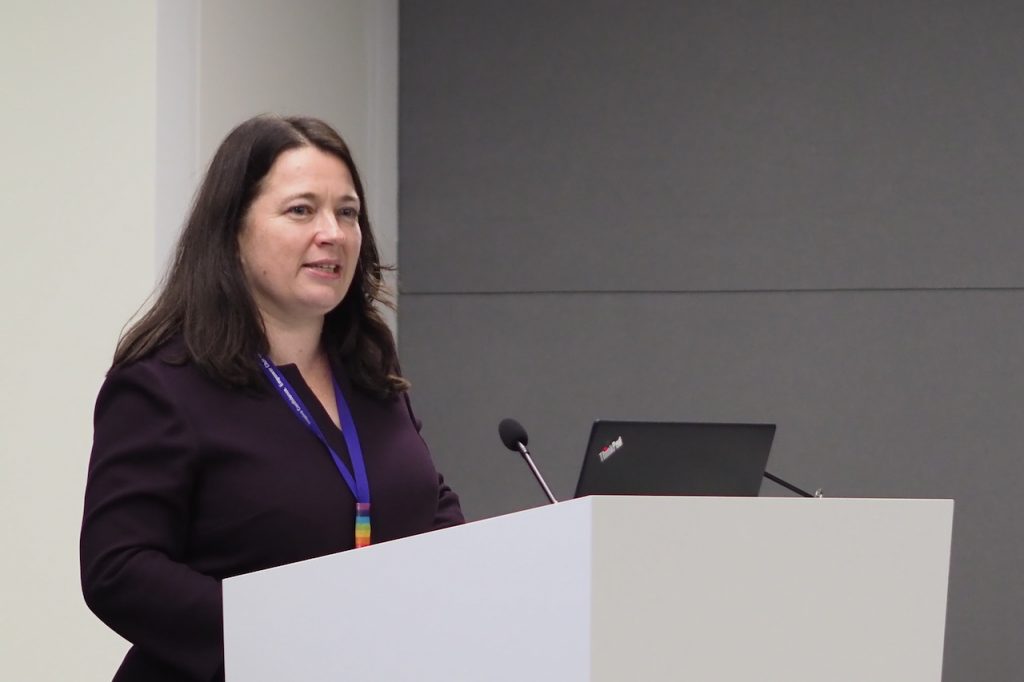
Leading the Cause
Anna Purchas, Head of People at KPMG, outlined three organizational objectives: clear accountability, inclusive leadership, and equality of opportunity by removing the barriers to progression. An example of this approach is Bano Sheikh.
Bano is the first female Pakistani Muslim partner at KPMG. Initially approached via LinkedIn, Bano came in for a two-hour interview during the month of Ramadan. Upon arrival, she was offered something to drink by the interview panel. When she turned it down explaining that she was fasting, the entire interview panel neither ate nor drank for those two hours.
While there is nothing prohibiting those who are not fasting from eating or drinking in front of a person who is fasting, this sign of solidarity showed a level of decency and kindness at the highest levels of the organization.
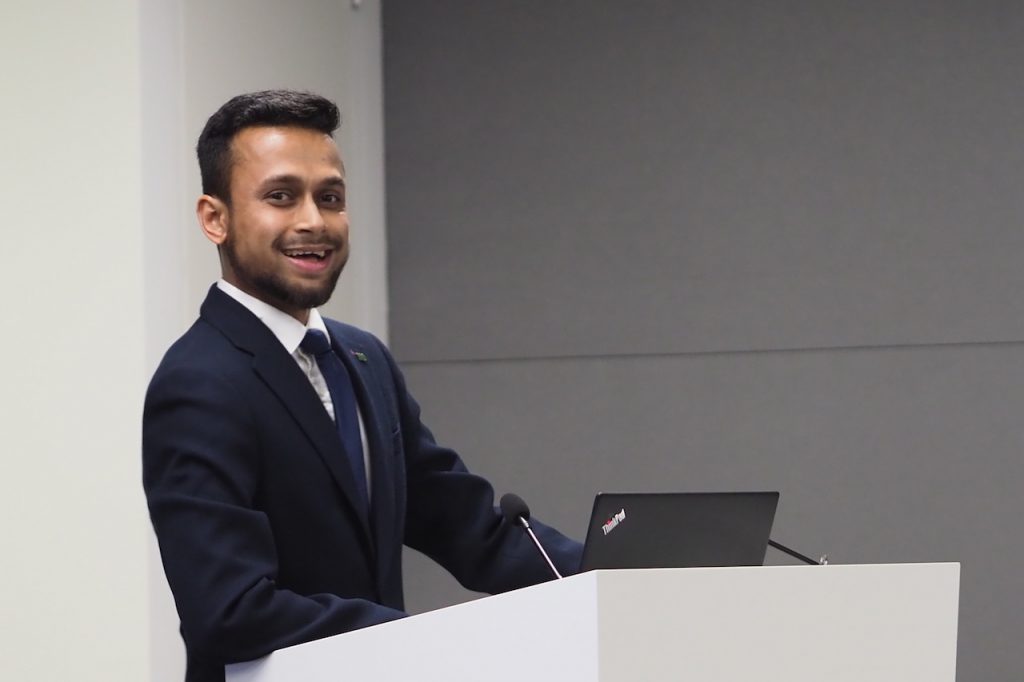
Understanding the Environment
Speaking on behalf of MEND, Aman Ali observed that more women are the targets of Islamophobia than men, adding that like every other form of hate crime, it is underreported.
Often Islamophobia leads people to feel as if they are not part of the community in which they live. Aman shared that at one event he was told, “You, as a brown Asian male, have just as much right to shape the direction of our country.”
Our success, therefore, is not to isolate one community but to be sufficiently confident to support all communities and their rights to live as they wish in peace.
Hamza Saghir from the Cube Network was thankful that he hadn’t directly experience Islamophobia as an adult. As a child, however, some children would taunt him crying out “Paki.”
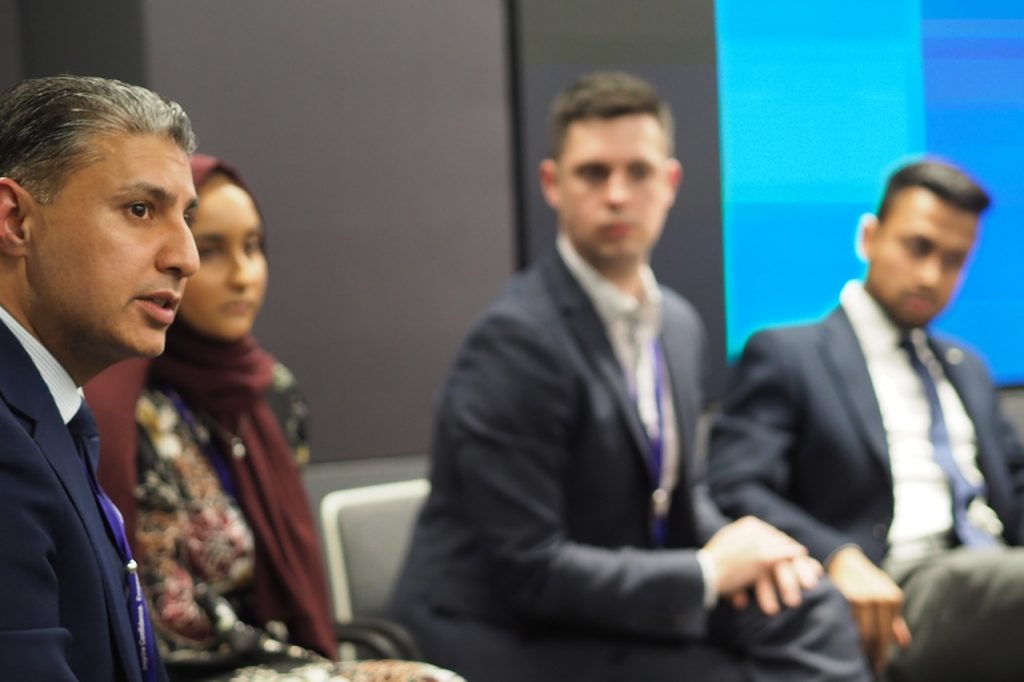
Today, Hamza’s ten-year-old son is facing a different challenge. Not only does racism sometimes creep in with slurs of ‘Paki,’ but the media stereotype of Muslims as militants means that sometimes children are labeled as ‘Terrorists.’
And increasingly with Brexit, the past three years have raised insecurities and anxieties, to the point that his son asked, “Which country will we move to if Brexit happens?’ – Why? Because so much of Brexit is driven by racial hatred and prejudice.
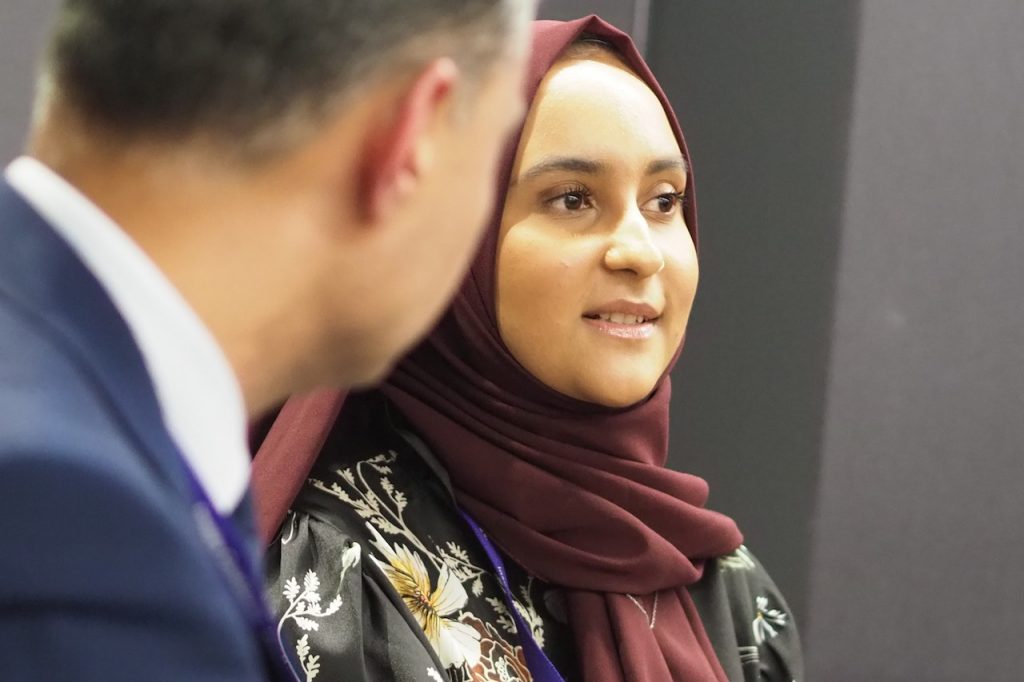
Harsh Reality Of Islamophobia
Tahira, a graduate who recently joined KPMG, when asked whether she had faced any form of Islamophobia, replied that as she is visibly perceived to be a Muslim by way of wearing a headscarf, she, as a university student, was once spat on when taking public transport.
What hurt Tahira was not the act of abuse she experienced, but the silence from the platform that was full of commuters, who simply stood by and didn’t provide her with any support.
Tahira added that her job at KPMG, in a rich, open, diverse environment meant that she could be herself and feels comfortable, allowing her to focus less on her identity and more on her job function. A safe environment, for anyone, enhances and enables productivity.
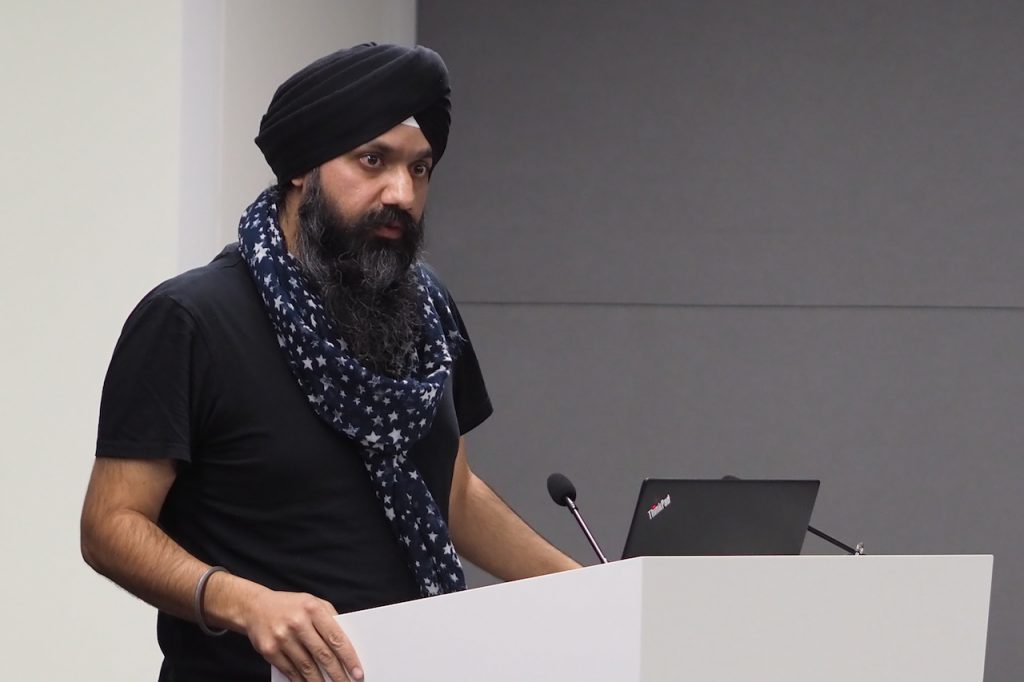
Shared Discrimination
As one of the panelists, Jagjit Singh from Zero Hunger With Langar observed that negativity is often posted on the front page of a newspaper, while the positive contributions from the immigrant or minority communities tend to be hidden something within the publication.
Jagjit shared that he travels frequently in Africa, to countries such as Kenya and Malawi, and often they do not know much about the Sikh religion, which at times has made him the target of anti-Muslim bigotry.
Langar refers to a community kitchen from where people are fed. Jagjit shared one example of how after providing food services to a community, a Muslim in the area asked him when he was going to bring his Sikh religious texts to try and convert some of the Muslims towards Sikhism.
To this Jagjit replied that his guru teaches him that if someone is a Muslim or a Christian, they should support them to become the best Muslim or the best Christian they can be. Food was not provided to the community to convert them, it was provided to allow all people to meet their basic human needs. Hunger, as Jagjit said, ‘this is not a Muslim problem or a Sikh problem, it is a problem for humanity (to overcome).’
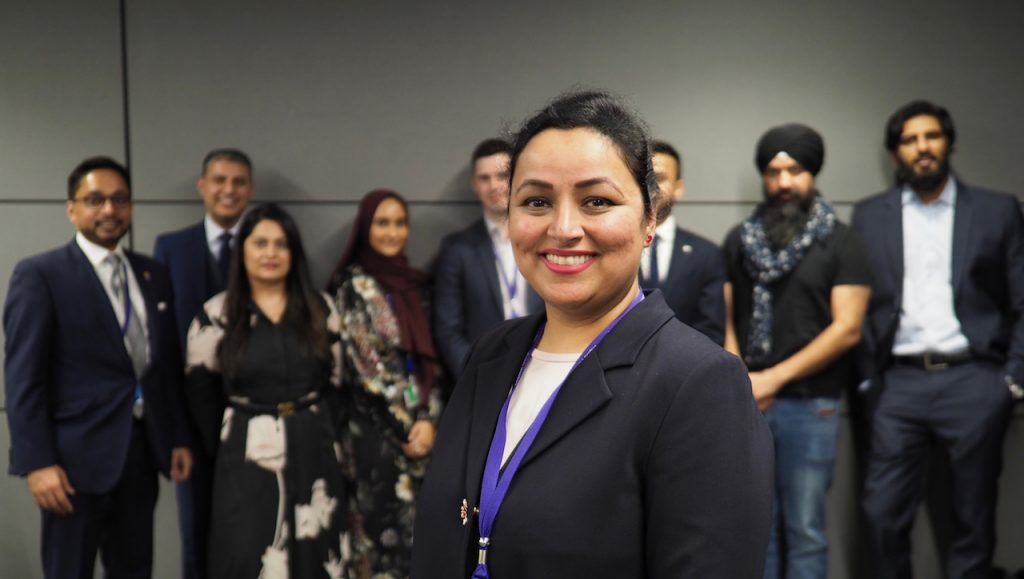
Words from the Audience
After the talks and panel sessions, questions and comments were shared by the audience, two of which stood out.
Rayla Javaid from the Association of Muslim Lawyers asked about changes to our curriculum so we can teach the history of the Commonwealth to British students as a means of adding context to the immigrant populations in the UK.
And Saftar Sarwar, who works in wealth management, added that given the underlying bias which exists in some parts of society, perhaps the best way to overcome stereotypes and to improve the condition for all people is to encourage minorities to ‘go the extra mile,’ to do more, to challenge negative stereotypes and in his words, be ‘the best version of yourself.’
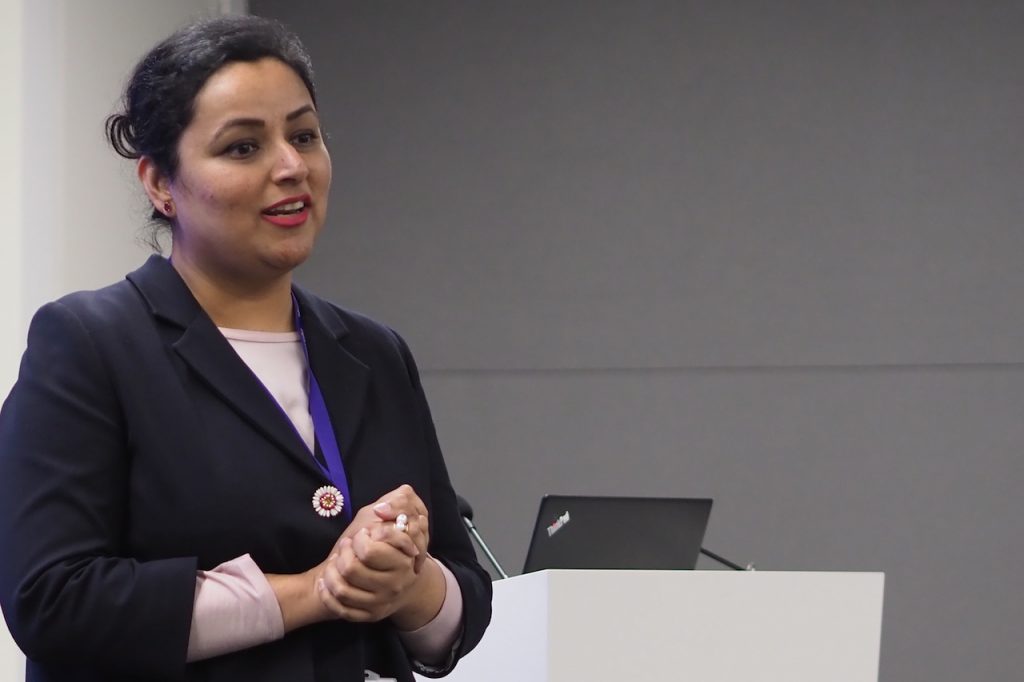
Where Do We Go Next?
By addressing the subject of Islamophobia, KPMG is demonstrating beyond words how inclusivity can add to the corporate experience. The next step is to progress, for one cannot lead if one cannot be seen. We need more visible role models.
And if Islamophobia – indeed any form of hatred – is to be overcome, it can only be when all communities within our society are represented fairly and their cultures and tradition become part of the rich woven fabric that reflects humanity.
The post Leading UK Firm Addresses Islamophobia appeared first on About Islam.
source https://aboutislam.net/muslim-issues/europe/leading-uk-firm-addresses-islamophobia/
No comments:
Post a Comment